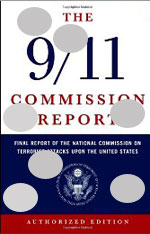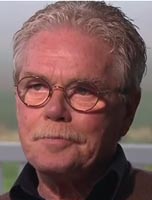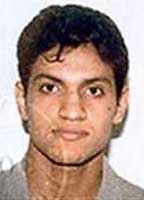con·spir·a·cy
kənˈspirəsē/
noun: conspiracy; plural noun: conspiracies
a secret plan by a group to do something unlawful or harmful.
"a conspiracy to destroy the government"
synonyms: plot, scheme, plan, machination, ploy, trick, ruse, subterfuge; informal racket
"a conspiracy to manipulate the results"
the action of plotting or conspiring.
"they were cleared of conspiracy to pervert the course of justice"
Synonyms: plotting, collusion, intrigue, connivance, machination, collaboration; treason
"conspiracy to commit murder"
The best explanation of conspiracy theory that I have come across was given by Talk Radio Host Dave vonKleist from the DVD "9/11 in Plane Site" which can be found at http://www.911inplanesite.com/
Dave vonKleist is a host on The Power Hour http://www.PowerHour.com
No conspiracy can possibly be true now can they? After all they are just theories; right?
In the phrase "Conspiracy Theory" There are two words, the first word "Conspiracy", the second word is the active word "Theory". By definition, a theory is a supposition, an idea, a concept, an hypothesis. Let me give you an example, in theory if I purchase a raffle ticket; I could win a prize. Now as long as I don't purchase a raffle ticket, my win is theoretical. But once you purchase a raffle ticket; the win is no longer a theory it becomes a possibility. And the more raffle tickets you purchase; the more possible and eventually probable the win becomes. Such as the case with a "Conspiracy Theory". As long as there is no evidence, it is a conspiracy theory. But once you have a piece of evidence; no matter how flimsy or circumstantial it may be, it becomes a possibility. And the more evidence that is gathered; the more possible and eventually probable the conspiracy is.
kənˈspirəsē/
noun: conspiracy; plural noun: conspiracies
a secret plan by a group to do something unlawful or harmful.
"a conspiracy to destroy the government"
synonyms: plot, scheme, plan, machination, ploy, trick, ruse, subterfuge; informal racket
"a conspiracy to manipulate the results"
the action of plotting or conspiring.
"they were cleared of conspiracy to pervert the course of justice"
Synonyms: plotting, collusion, intrigue, connivance, machination, collaboration; treason
"conspiracy to commit murder"
The best explanation of conspiracy theory that I have come across was given by Talk Radio Host Dave vonKleist from the DVD "9/11 in Plane Site" which can be found at http://www.911inplanesite.com/
Dave vonKleist is a host on The Power Hour http://www.PowerHour.com
No conspiracy can possibly be true now can they? After all they are just theories; right?
In the phrase "Conspiracy Theory" There are two words, the first word "Conspiracy", the second word is the active word "Theory". By definition, a theory is a supposition, an idea, a concept, an hypothesis. Let me give you an example, in theory if I purchase a raffle ticket; I could win a prize. Now as long as I don't purchase a raffle ticket, my win is theoretical. But once you purchase a raffle ticket; the win is no longer a theory it becomes a possibility. And the more raffle tickets you purchase; the more possible and eventually probable the win becomes. Such as the case with a "Conspiracy Theory". As long as there is no evidence, it is a conspiracy theory. But once you have a piece of evidence; no matter how flimsy or circumstantial it may be, it becomes a possibility. And the more evidence that is gathered; the more possible and eventually probable the conspiracy is.



